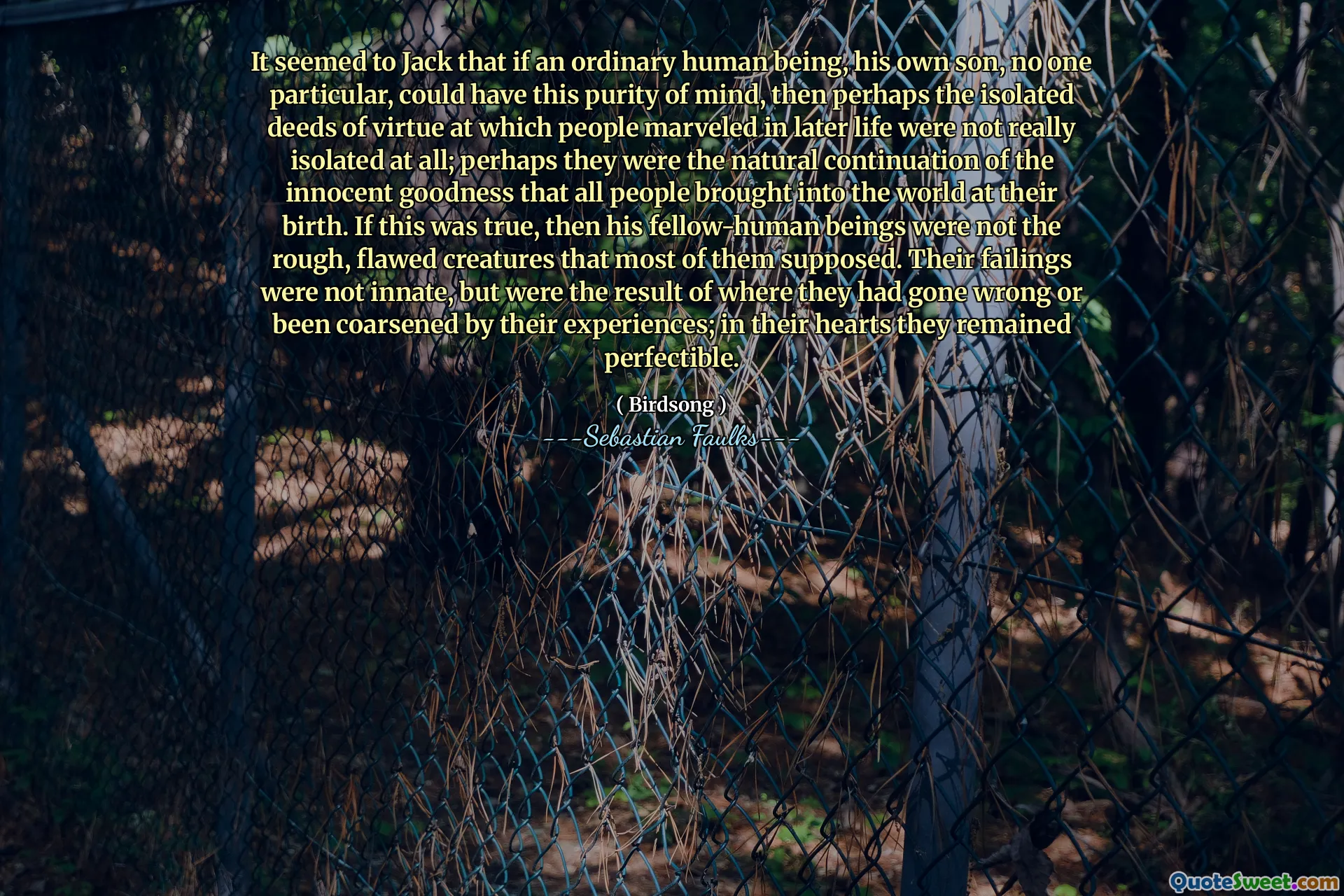
It seemed to Jack that if an ordinary human being, his own son, no one particular, could have this purity of mind, then perhaps the isolated deeds of virtue at which people marveled in later life were not really isolated at all; perhaps they were the natural continuation of the innocent goodness that all people brought into the world at their birth. If this was true, then his fellow-human beings were not the rough, flawed creatures that most of them supposed. Their failings were not innate, but were the result of where they had gone wrong or been coarsened by their experiences; in their hearts they remained perfectible.
In Jack's contemplation, he recognizes a profound innocence in ordinary people, especially as he reflects on his own son. He begins to believe that the acts of kindness and virtue that individuals exhibit throughout their lives might not be extraordinary but rather an extension of the innate goodness everyone possesses from birth. This realization leads him to question the notion that people are fundamentally flawed or rough.
Instead, Jack suggests that the imperfections and mistakes are a result of life's experiences rather than an inherent lack of virtue. In this light, he sees humanity as fundamentally good, capable of improvement and redemption. This perspective fosters a belief in the potential for goodness in everyone, regardless of their past, emphasizing that at their core, people can aspire to be better and uphold the purity they once had.











